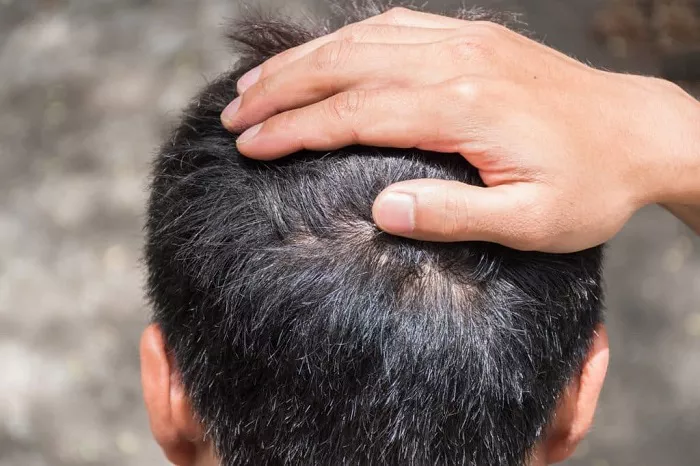After a hair transplant, the scalp and newly transplanted hair follicles are in a delicate state. Using the wrong hair products can potentially harm the transplanted area, slow down the healing process, or even lead to complications. It is crucial to be aware of which products should be avoided during the recovery period to ensure the best possible outcome.
Harsh Shampoos
Sulfate – Based Shampoos
Sulfate – based shampoos are common in many commercial hair – cleaning products. However, they should be avoided after a hair transplant. Ingredients like sodium lauryl sulfate (SLS) and sodium laureth sulfate (SLES) are strong surfactants. They are very effective at removing dirt and oil, but they can also strip the scalp of its natural oils. After a transplant, the scalp needs to maintain a certain level of moisture to support the healing process. When these sulfates remove the natural oils, the scalp can become dry, itchy, and irritated. This can cause discomfort and may even disrupt the newly transplanted follicles. For example, if the scalp becomes too dry, it can lead to flaking, and scratching these flakes can accidentally dislodge the transplanted hair.
Shampoos with High Alcohol Content
Some shampoos contain alcohol as an ingredient to help with quick drying. But shampoos with a high percentage of alcohol, such as ethanol or isopropyl alcohol, can be extremely drying to the scalp. This drying effect can cause the scalp to become tight and may even lead to cracking in severe cases. The newly transplanted hair follicles need a healthy, moisturized environment to establish themselves properly. Alcohol – based shampoos can disrupt this environment and potentially damage the follicles.
Styling Products with Strong Chemicals
Hairsprays with Harsh Solvents
Hairsprays often contain solvents like ethanol and hydrocarbons. These substances help the product to dry quickly and hold the hair in place. However, after a hair transplant, they can be harmful. The fumes from these solvents can irritate the sensitive scalp, and if the hairspray comes into direct contact with the transplanted area, it can cause inflammation.
Additionally, the chemicals in these products can build up on the scalp over time, clogging the pores and interfering with the normal functioning of the hair follicles. This can impede the growth of the transplanted hair and may even lead to infection if the pores are blocked for an extended period.
Gels with Synthetic Polymers
Hair gels that contain synthetic polymers are designed to provide a strong hold. But these polymers can be difficult to wash out completely, especially if they accumulate on the scalp. After a transplant, any residue left on the scalp can cause irritation. The scalp may become red and itchy, and this can be very uncomfortable for the patient. Moreover, some of these synthetic polymers may have an adhesive effect on the transplanted hair follicles, potentially pulling them or causing stress during the healing phase.
Products with Fragrance and Dyes
Fragranced Hair Products
Many hair products, including shampoos, conditioners, and styling products, come with added fragrances. These fragrances are usually made up of a combination of synthetic chemicals. While they make the products smell nice, they can be irritating to the sensitive scalp after a hair transplant.
Some people may be allergic to certain fragrance components, and even those who are not allergic can experience redness, itching, or a burning sensation due to the chemicals in the fragrance. This can disrupt the healing process of the scalp and affect the success of the transplant.
Hair Dyes and Colorants
Hair dyes, whether they are permanent, semi – permanent, or temporary, should be avoided after a hair transplant. The chemicals in hair dyes, such as ammonia and peroxide, are very harsh. They can penetrate the scalp and damage the newly transplanted follicles. The process of dyeing involves opening the cuticle of the hair shaft, and this can also affect the delicate balance of the scalp environment. Even if the dye is not directly applied to the transplanted area, the chemicals can still seep into the scalp during the rinsing process and cause harm. This can lead to hair breakage, loss of transplanted hair, or even an allergic reaction.
Hair Oils with Irritating Ingredients
Essential Oils Without Proper Dilution
While some essential oils can have beneficial effects on the scalp under normal circumstances, they can be dangerous if used improperly after a hair transplant. For example, tea tree oil is known for its antimicrobial properties, but if used undiluted, it can cause severe irritation. The concentrated form of essential oils can be too strong for the sensitive scalp after a transplant. They can cause redness, burning, and in some cases, allergic reactions. When using essential oils, it is essential to dilute them with a carrier oil like coconut oil or jojoba oil to reduce the risk of irritation.
Mineral Oils with Additives
Some hair oils contain mineral oil with added chemicals. These added substances can be harmful to the scalp after a transplant. Mineral oil itself can clog the pores of the scalp if used in excess. If the oil contains preservatives or other synthetic additives, they can cause an allergic reaction or irritation. It is better to choose natural, pure oils like argan oil or almond oil that are less likely to cause problems.
Conclusion
Avoiding certain hair products after a hair transplant is vital for the health and success of the procedure. By being cautious about the shampoos, styling products, fragranced items, and hair oils that are used, patients can protect the delicate scalp environment and give the newly transplanted hair follicles the best chance to thrive. It is always important to follow the advice of the doctor or medical team who performed the transplant, as they can provide specific guidance based on the individual’s condition. With proper care and attention to the products used, the recovery process can be smooth, and the results of the hair transplant can be long – lasting.
Related Topics:

